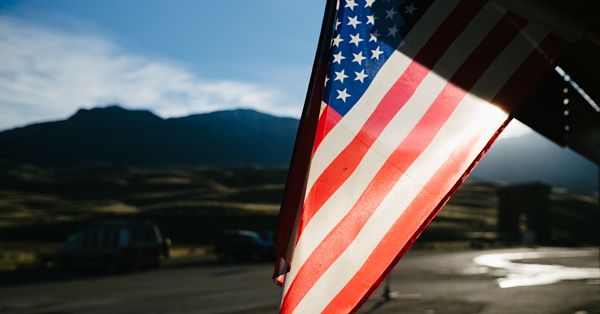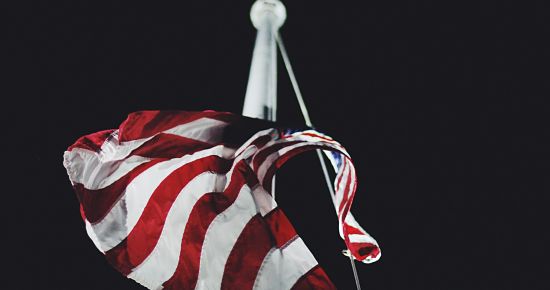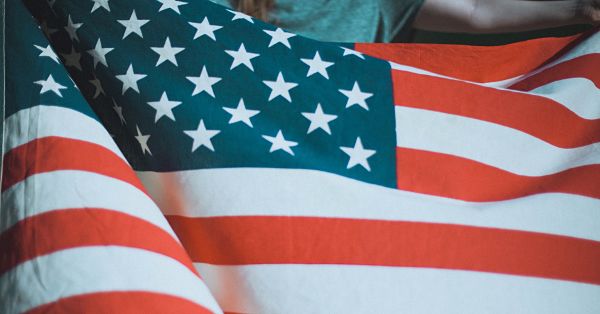August 22, 1787 (Click to read Madison’s notes)
Summary
The delegates debated slavery’s place in the new nation and prohibited bills of attainder and ex post facto laws. The delegates referred the slavery question to a committee.
Influences on the Delegates
The delegates began the slavery debate the day before today’s session. In essence, they were debating these sections of Article VII:
Sect. 3. The proportions of direct taxation shall be regulated by the whole number of white and other free citizens and inhabitants of every age, sex and condition, including those bound to servitude for a term of years, and three-fifths of all other persons not comprehended in the foregoing description, (except Indians not paying taxes); which number shall, within six years after the first meeting of the Legislature, and within the term of every ten years afterwards, be taken in such a manner as the said Legislature shall direct.
Sect. 4. No tax or duty shall be laid by the Legislature on articles exported from any State; nor on the migration or importation of such persons as the several States shall think proper to admit; nor shall such migration or importation be prohibited.
I wrote yesterday that the debate left me with little doubt that many of the delegates did not attempt to incorporate Christianity into their thinking. They didn’t appeal to religion and in fact South Carolina’s Rutledge denied that religion or humanity had anything to do with the matter.
In today’s discussion, Christian delegate Roger Sherman sounded the voice of compromise.
Mr. SHERMAN was for leaving the clause as it stands. He disapproved of the slave-trade; yet as the States were now possessed of the right to import slaves, as the public good did not require it to be taken from them, and as it was expedient to have as few objections as possible to the proposed scheme of government, he thought it best to leave the matter as we find it. He observed that the abolition of slavery seemed to be going on in the United States, and that the good sense of the several States would probably by degrees complete it. He urged on the Convention the necessity of despatching its business.
In what has become a famous speech, George Mason ranted about how evil slavery was and attempted to integrate Christian ideas. However, as a slave holder, his rant rang a little hollow.
Colonel MASON. This infernal traffic originated in the avarice of British merchants. The British Government constantly checked the attempts of Virginia to put a stop to it. The present question concerns not the importing States alone, but the whole Union. The evil of having slaves was experienced during the late war. Had slaves been treated as they might have been by the enemy, they would have proved dangerous instruments in their hands. But their folly dealt by the slaves as it did by the tories. He mentioned the dangerous insurrections of the slaves in Greece and Sicily; and the instructions given by Cromwell to the commissioners sent to Virginia, to arm the servants and slaves, in case other means of obtaining its submission should fail. Maryland and Virginia, he said, had already prohibited the importation of slaves expressly. North Carolina had done the same in substance. All this would be in vain, if South Carolina and Georgia be at liberty to import. The Western people are already calling out for slaves for their new lands; and will fill that country with slaves, if they can be got through South Carolina and Georgia. Slavery discourages arts and manufactures. The poor despise labor when performed by slaves. They prevent the emigration of whites, who really enrich and strengthen a country. They produce the most pernicious effect on manners. Every master of slaves is born a petty tyrant. They bring the judgment of Heaven on a country. As nations cannot be rewarded or punished in the next world, they must be in this. By an inevitable chain of causes and effects, Providence punishes national sins by national calamities. He lamented that some of our Eastern brethren had, from a lust of gain, embarked in this nefarious traffic. As to the States being in possession of the right to import, this was the case with many other rights, now to be properly given up. He held it essential in every point of view, that the General Government should have power to prevent the increase of slavery.
While we can commend Mason for his negative comments about slavery, we can’t say as David Barton did recently, that American slavery was a human issue and not a race issue to the founders. At least in the case of Mason, he clearly preferred whites over blacks coming into the country.
Connecticut’s Ellsworth called out Mason (by implication) as a slave holder.
Mr. ELLSWORTH, as he had never owned a slave, could not judge of the effects of slavery on character. He said, however, that if it was to be considered in a moral light, we ought to go further and free those already in the country. As slaves also multiply so fast in Virginia and Maryland that it is cheaper to raise than import them, whilst in the sickly rice swamps foreign supplies are necessary, if we go no further than is urged, we shall be unjust towards South Carolina and Georgia. Let us not intermeddle. As population increases, poor laborers will be so plenty as to render slaves useless. Slavery in time, will not be a speck in our country. Provision is already made in Connecticut for abolishing it. And the abolition has already taken place in Massachusetts. As to the danger of insurrections from foreign influence, that will become a motive to kind treatment of the slaves.
Sadly, Mason was more right than Ellsworth on the eventual result of slavery. We did suffer a national calamity because slaves were not considered useless by Southern states leaders.
Next, the delegates Pinckney justified slavery and invoked fairness as a value. It wouldn’t be fair to Georgia or South Carolina if slavery were curtailed.
Mr. PINCKNEY. If slavery be wrong, it is justified by the example of all the world. He cited the case of Greece, Rome, and other ancient states; the sanction given by France, England, Holland, and other modern states. In all ages one half of mankind have been slaves. If the Southern States were let alone, they will probably of themselves stop importations. He would himself, as a citizen of South Carolina, vote for it. An attempt to take away the right, as proposed, will produce serious objections to the Constitution, which he wished to see adopted.
General PINCKNEY declared it to be his firm opinion, that if himself and all his colleagues were to sign the Constitution, and use their personal influence, it would be of no avail towards obtaining the assent of their constituents. South Carolina and Georgia cannot do without slaves. As to Virginia, she will gain by stopping the importations. Her slaves will rise in value, and she has more than she wants. It would be unequal, to require South Carolina and Georgia to confederate on such unequal terms. He said the Royal assent, before the Revolution, had never been refused to South Carolina, as to Virginia. He contended, that the importation of slaves would be for the interest of the whole Union. The more slaves, the more produce to employ the carrying trade; the more consumption also; and the more of this, the more revenue for the common treasury. He admitted it to be reasonable that slaves should be dutied like other imports; but should consider a rejection of the clause as an exclusion of South Carolina from the Union.
Did the delegates respond to Mason’s warnings about God’s disapproval? Not at all, the arguments here were not religious or even designed to counter religious arguments. If theology had been argued here, one might suggest that the delegates wanted a Christian republic but disagreed about doctrine or points of theology. The only reference again to religious arguments was Randolph’s fear that the Quakers and Methodists would oppose the Constitution over slavery.
Mr. RANDOLPH was for committing, in order that some middle ground might, if possible, be found. He could never agree to the clause as it stands. He would sooner risk the Constitution. He dwelt on the dilemma to which the Convention was exposed. By agreeing to the clause, it would revolt the Quakers, the Methodists, and many others in the States having no slaves. On the other hand, two States might be lost to the Union. Let us then, he said, try the chance of a commitment.
In the end, the delegates committed the question to a committee.
On the question for committing the remaining part of Sections 4 and 5 of Article 7, — Connecticut, New Jersey, Maryland, Virginia, North Carolina, South Carolina, Georgia, aye, — 7; New Hampshire, Pennsylvania, Delaware, no, — 3; Massachusetts, absent.
1787 Constitutional Convention Series
To read my series examining the proceedings of the Constitution Convention, click here. In this series, I am writing about any obvious influences on the development of the Constitution which were mentioned by the delegates to the Convention. Specifically, I am testing David Barton’s claim that “every clause” of the Constitution is based on biblical principles. Thus far, I have found nothing supporting the claim. However, stay tuned, the series will run until mid-September.
Constitutional Convention Series (click the link)
To follow on social media, click the following links:
Facebook (blog posts and news)
Facebook (Getting Jefferson Right – history news)
Twitter


